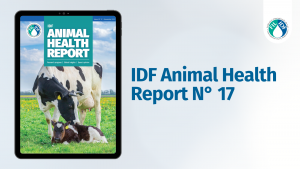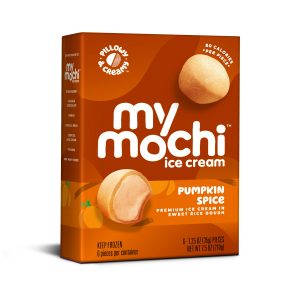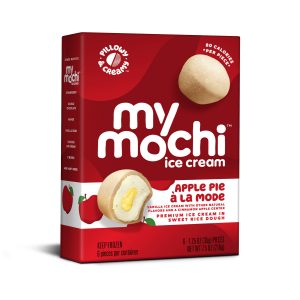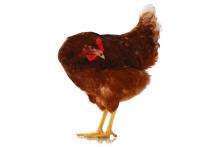Arizona Sued Over Cage-Free Eggs Rule on Restaurateur’s Behalf
Arizona small business owner Grant Krueger was already running his restaurants on razor-thin margins before the state Department of Agriculture mandated that only cage-free eggs be sold in Arizona. The Goldwater Institute and Pacific Legal foundation have filed suit on Krueger’s behalf, challenging the agency’s mandate, which they say violates the Arizona Constitution.
Over Krueger’s 34 years in the restaurant business, said he’s seen first-hand the impact of reckless government policy, including inflationary pressures, wage mandates and COVID decrees. Now, at a time when restaurants and restaurant-goers alike are already struggling with inflated food prices, the new cage-free egg rule will increase costs, while poaching his rights and scrambling the rule of law, according to Goldwater.
“I had no seat at the table for any of this,” said Krueger, who buys more than 2,000 eggs per week to supply his three Tucson-area restaurants, Union Public House, Reforma Modern Mexican and Proof Artisanal Pizza. “Unaccountable, unelected bureaucrats shouldn’t be able to arbitrarily impose these kinds of harmful mandates on small business owners like me.”
The egg rule wasn’t passed by the Arizona Legislature. Cage-free eggs are more expensive to produce than conventional methods—so much so that the mandate could impose up to $66 million in increased costs on Arizonans, according to Goldwater. But rather than go through the proper lawmaking process on critical policy questions, AZDA bureaucrats usurped the legislature’s lawmaking authority, creating a brand-new policy that affects the entire state—all while acting with zero checks and balances.
According to the Humane League, Arizona was the 10th state to enact such a mandate. “Arizona prohibited the production and sale of eggs from caged hens, joining nine other states in protecting egg-laying hens at the state level: Utah, Colorado, Michigan, Washington, Oregon, California, Massachusetts, Rhode Island, and Nevada,” according to the Humane League.
“In the fight to free hens from battery cages—brutal metal enclosures as small as filing cabinet drawers—state-wide legislation and regulation is one of the most powerful ways to enact change,” according to the Humane League’s website. “In writing new regulations to protect egg-laying hens from a lifetime of mistreatment and misery in confinement, Arizona is making crucial progress for chickens, not just within the Grand Canyon State but also beyond its borders.
“By 2025, all eggs laid or sold within the state of Arizona must be 100 percent cage-free. This means that, once the rule is fully implemented, over seven million hens will be spared from life in extreme confinement every single year,” according to the Humane League.
“According to the new rule, Arizona farmers are required to provide egg-laying hens with at least one square foot of floor space—an important upgrade to the harsh conditions of battery cages, which confine each bird to an area no bigger than the surface of a small iPad per animal,” according to the Humane League.
According to the Arizona Department of Agriculture, small producers with fewer than 20,000 egg-laying producing hens are exempt from this cage size requirement standard. The rule had been slated to be enforced in October 2022, but a delay was necessary due to the national egg shortage caused by avian influenza. The mandate does apply to retail sales. Egg producers must apply for and receive certification and be registered with the AZDA before selling their eggs.
“The Arizona Constitution is clear: lawmaking is the job of Arizonans’ elected representatives, not unelected regulators,” said Goldwater Staff Attorney John Thorpe. “But bureaucrats are trying to go around the lawmaking process to impose a policy that only helps the government’s favored special interests while hurting everyone else.”
“The legislature cannot give regulatory agencies like the Arizona Department of Agriculture the power to make the law,” said Adi Dynar, an attorney at Pacific Legal Foundation. “Sweeping policies, like the cage-free egg rule, which substantially increase prices for businesses and consumers, must be made by the people’s representatives, not bureaucrats.”
Read the lawsuit here.
For more news of interest to the specialty food industry, subscribe to Gourmet News.
IDF Animal Health Report Details Young Stock Management
 The latest edition of the International Dairy Federation Animal Health Report, dedicated to the science and practice of young stock management, takes readers on a global journey, exploring intriguing and inspirational cases from around the world, emphasizing the pivotal role played by calf and young animal management in ensuring the health and welfare of the dairy sector.
The latest edition of the International Dairy Federation Animal Health Report, dedicated to the science and practice of young stock management, takes readers on a global journey, exploring intriguing and inspirational cases from around the world, emphasizing the pivotal role played by calf and young animal management in ensuring the health and welfare of the dairy sector.
The IDF Animal Health Report transports its readers to diverse locations, including Australia, Canada, Germany, Italy, Kenya, Nigeria, Norway, South Africa, Sweden, and The Netherlands. Additionally, the report provides valuable insights from the World Organisation for Animal Health, one of IDF’s key stakeholders.
Whether you are a seasoned dairy farmer with years of experience or an inquisitive observer seeking knowledge, this edition shines a light on the transformation in the global dairy landscape. Today, animal welfare is viewed holistically, with a strong emphasis on the care and nurturing of calves and youngstock. This shift in perspective has made animal health and welfare a top priority for the dairy industry.
Caroline Emond, director general of the International Dairy Federation, said, “I extend a warm invitation to immerse yourself in this exploration of young stock management, with the goal of championing the well-being of the future generation of dairy animals. The health and welfare of our young stock are the foundation upon which a thriving and sustainable dairying is constructed.”
This edition of the IDF Animal Health Report is a testament to the global efforts to advance young stock management and to create a brighter future for dairy animals. The IDF continues to be at the forefront of initiatives to promote best practices and innovative approaches in the dairy industry.
For more information and to access the IDF Animal Health Report, please visit the IDF website.
For more news of interest to the dairy industry, subscribe to Gourmet News.
My/Mochi Pumpkin Spice, Apple Pie Flavors Return
 It’s that time of year when all that is nice comes is pumpkin spice! My/Mochi is no exception. The brand will start stocking freezers nationwide with its Pumpkin Spice, as well as Apple Pie á La Mode, mochi ice creams beginning in early September.
It’s that time of year when all that is nice comes is pumpkin spice! My/Mochi is no exception. The brand will start stocking freezers nationwide with its Pumpkin Spice, as well as Apple Pie á La Mode, mochi ice creams beginning in early September.
The Los Angeles-based company makes its own creamy, premium ice cream and wraps it in pillowy rice dough to deliver a cool, dual texture experience in an 80-calorie portioned snack that fits in the palm of your hand.
 Pumpkin Spice stands out among the fall food frenzy with cinnamon pumpkin spice ice cream and graham cracker wrapped in the chewy mochi dough; and Apple Pie á La Mode delivers a twist on the classic with a soft cinnamon spice apple filling perfectly placed in the center of vanilla ice cream so you get that extra taste sensation in every bite.
Pumpkin Spice stands out among the fall food frenzy with cinnamon pumpkin spice ice cream and graham cracker wrapped in the chewy mochi dough; and Apple Pie á La Mode delivers a twist on the classic with a soft cinnamon spice apple filling perfectly placed in the center of vanilla ice cream so you get that extra taste sensation in every bite.
“At My/Mochi, we love bringing joy to people year-round and we get super excited about our seasonal and holiday flavors because they’re fun and unique in the ice cream category,” says Brigette Wolf, chief marketing officer, My/Mochi. “Because we make our own ice cream and our own mochi dough, we craft these limited batches fresh for the season and are so excited seeing how people rush to make sure they don’t miss out!”
My/Mochi Seasonals are available at select retailers nationwide for an average price of $5.99 for a six-count box.
My/Mochi is the original mochi ice cream company, founded in the 1990s by a Japanese baker and American entrepreneur who set up a small shop in Los Angeles’ Little Tokyo. Since then, the brand has evolved and grown to be the world’s largest producer of mochi ice cream. It is available in more than 20 flavors – including Cookies & Cream, Strawberry, Double Chocolate, Mango and S’Mores, as well as dairy-free options and Smoothies.
All My/Mochi ice cream is gluten free, soy free, made with milk containing no rBST and non-GMO ingredients. My/Mochi is available at retailers nationwide.
For more news of interest to the specialty food industry, subscribe to Gourmet News.
